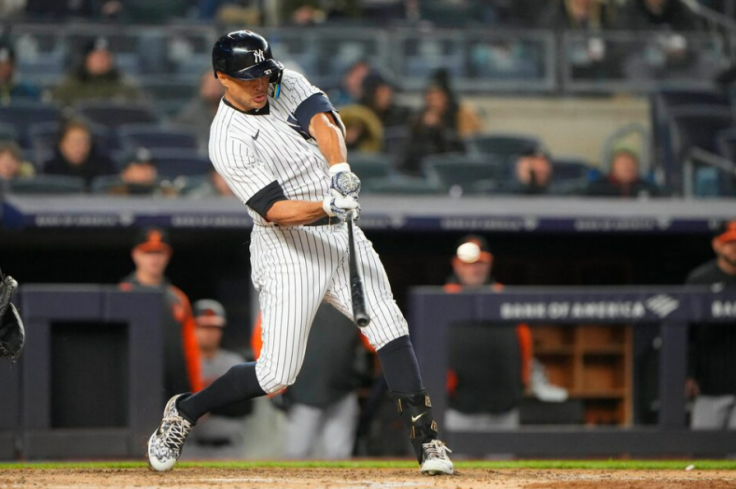
SEATTLE - Have you ever wondered how fast or slow Major League Baseball players swing at the ball? Well, now you can find out, thanks to Statcast's new bat-tracking data, new technology offering fans insight into everything from bat speed to swing length.
Using five high-rate Hawk-Eye cameras that run at 300 frames per second, Statcast and MLB will now be able to track not only the speed of the bat but also its path, location, and relation to the pitch.
The league has spent more than two years refining its bat-tracking model and now, with cameras documenting every swing of every hitter, we can finally get a new ways to understand the art of batting the baseball.
These new metrics can be divided into two simple things: the average bat speed of a hitter and the speed of its swing. Statcast defines a "fast swing" as one that reaches a swing speed of at least 75 MPH and the "fast-swing rate" will simply showcase the percentage of all the swings in which a batter reached the 75 MPH threshold.
According to the data collected so far, the average swing in the Majors is 71.5 MPH and the average length of the bat's path on a swing is 7.3. There's one hitter in the Majors that stands out from the rest: New York Yankees' slugger Giancarlo Stanton.
The former MVP of Puerto Rican descent has an average swing speed of 80.6 MPH, more than five MPH than the league's average and nearly three MPH higher than the second-fastest swinger.
Stanton has been one of the hardest hitters in MLB since his debut in 2010, and now we can finally say that he is one with the fastest swings too. According to the new metric, 98% of his swings are considered fast swings compared to the league's average of just 22%.
Compared to the player with the slowest swing in MLB, Stanton is averaging almost 20 MPH more on each swing. The player on the other end of the spectrum is Luis Arraéz (slowest swing at 62.4 MPH). But being the fastest is not always the best approach to hitting the baseball on the perfect spot.
Statcast's new squared-up rate tells us how effective a hitter is at getting the maximum exit velocity from his swing. Despite not being the hardest or fastest hitter, the Arraéz second has hit the "sweet spot" in 43% of his swings, the best rate in the Majors.
But if you are an avid baseball fan and you want to see which players have the perfect balance of squared up at-bats and fast swings, Statcast has you covered. They created a new metric called "blasts" which is when a batter squares up a ball and does so with a minimum amount of bat speed of 82 MPH.
This new metric is where we can find all the big names such as Shohei Ohtani, Juan Soto and Stanton, but none hit as many as Milwaukee Brewers catcher William Contreras. The Venezuelan has hit a "blast" in 24% of his swings, almost 4% more than Ohtani's rate.
Despite it being a new project, MLB's new metrics will help fans to better understand the hitters' approach when they are up on the plate. One thing is for certain: Latinos keep on leading the way.
© 2024 Latin Times. All rights reserved. Do not reproduce without permission.







